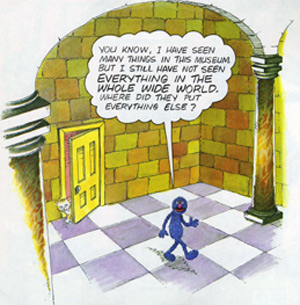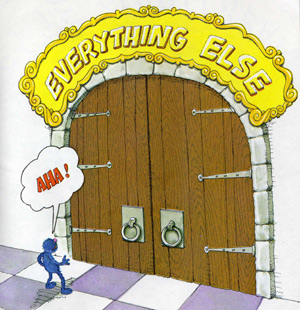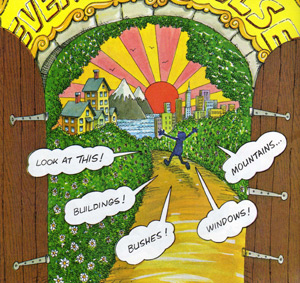


Beginning Unschooling: Some ideas
from a 2009 interview here:
What advice do you have for families who are new to homeschooling?Don't spend money at first. Read, meet other families, let your children have time to do what they're interested in, or what they weren't allowed to do before because of school. If they want to read or play in the yard or ride bikes or watch movies or draw or paint or play games, make that possible for them.
While the children are recovering, the parents can learn about what they want to do and why, and how. There is more online about homeschooling than anyone could ever read. Find the writers and ideas that make sense to you, and pursue that. Don't rush into anything. Parents should learn to be calm and thoughtful instead of panicky and reactionary. It's better for health and decision-making, and it sets a good example for the children. Don't live in fear when you can live in joy.
When I was beginning to change my parenting behavior, I would memorize a phrase to get me started in the direction I wanted to go.
When I was worried about answering people's concerns that we were taking our son out of school, I memorized, "We're going to try this and see how it goes."
When I wanted to respond to my children without bossiness but still tell them my concerns, I memorized, "I'm not sure about this, but let's think about it together."
And so on. It was my version of carrying something in my wallet.
Peace,
Amy (arcarpenter)
"It was hard for me to realize I wasn't being kind or generous to my kids - I think of myself as a pretty kind person, in general, and I was certainly doing things I *thought* were generous... Part of the problem I had was that I wasn't thinking about Ray's interests and desires in the moment, I was thinking about the person he might become. I was being kind and generous to the adult I hoped he would grow into, doing things that were "good for him" so he could become that adult. Setting up life lessons for kids ignores who kids are as people in favor of theoretical adults - which isn't kind to who children are right now."—Meredith Novak
Back in the day, these are the things I would have told my brand new unschooling self:
Kids want to learn. They just do. Get the hell out of the way, and leave an interesting trail behind you.If a child is happily playing a computer game or watching TV for the *entire* time that that child would have been in school, that child is infinitely better off than if she was unhappily at school.
The main goal is raising happy kids. Everything else is a bonus.
Worry and guilt are pretty much wasted emotions. Act from right now.
Get on eBay or go to thrift stores and garage sales and try to find and buy all the toys and books you loved as a kid and the ones you always wanted and never got. Then if you run into things you never saw but would've loved as a kid, buy those too. Sometimes I think about all the money I've saved on vaccinations, daycare, preschool, private school, formula and disposable diapers—I consider that "fun life" money.
After a time, if you know your child is never going to play with the above, and you no longer need it, bless another family or local thrift store with it.
Don't ever talk about money wasted.
Invite your most interesting, off-the-wall friends for dinner or overnights...often.
Give your kids an allowance. My grandma always said everyone needs a little pocket money.
Create an environment that would be the ultimate summer vacation set-up.
If you can afford it, and you worry about having a clean house, hire a helper. For me, that means giving up one big meal out a month. (I don't do it, but I think it is a comforting thought.)
If you have no money, love and trust are better than school.
Think of all the things you learned without school. Write them down. Or don't. You never did like being told what to do :).
Print out quotes that ring true about parenting, freedom, and unschooling and post them on the fridge.
Even though it's a cliché: Fake it till you make it.
Be honest with your kids. Really.
When you have a bad moment, admit it. Move on.
When a relative treats your child unfairly or unkindly, protect your child. Once in awhile, say things (nicely) you would've liked to have said in retaliation when you were a kid. Just imagining it sometimes works too.
Remember that you get to heal yourself when you treat a child the way you would've liked the adults in your life to treat you.
Really note the *child's* interests. If you are into books and your child isn't, no big. Your child will have lots of other interests. Likewise, if you're into sports and your child isn't, your little 'un will have a lot to show *you*.
If your child asks you not to do something, don't do it.
Remember foodstuffs (flour, eggs, etc.) are inexpensive toys and full of experiment power. Don't get hung up on wasting. (This is also good to remember when you're in the middle of a great phone conversation. Eva has, many times, happily cracked a dozen eggs while I finished up a great phone call.)
Sometimes we all need a little sweet to help us feel sweet (I was thinking about food, but I guess this is about way more than food).
I'd rather have dentures than horrible memories of a parent forcing me to brush my teeth.
If you have no unschooling friends in real life, and you need a sense of community and connection, it is more than okay to be online. Try to get a high speed connection.
If you love schedules, it is okay to plan things, tentatively. "If nothing better comes along," You might say, "I'll be making cookies on Monday, cleaning the fishbowls on Wednesday, going to the library on Thursday, yard sale-ing on Saturday. If anyone wants to come or has better suggestions, let me know!"
If it appeals to you, subscribe to the newspaper and don't read anything that doesn't sit well with you. It is full of local happenings, weird occurrences, kids pages, comics, free animals, coupons, the TV and movie guide, and gossip about your kids' favorite stars:). Add stuff from the newspaper to your tentative schedule.
Learn something you always wanted to learn. Actively engaging in life is great for creating happy energy. Happy energy is the most wonderful thing in the world to be around. I want my kids to want to be around me.
Parent kindly and mindfully parent.
And my husband added:
Take advantage of every opportunity to answer questions your children ask. Don't try to teach them lessons ...cause then they get bored, just answer their questions.Never tell them you will take them to the hot tub if you don't know for sure you can.
Get on eBay or go to thrift stores and garage sales and try to find and buy all the toys and books you loved as a kid and the ones you always wanted and never got. Then if you run into things you never saw but would've loved as a kid, buy those too.
This is big for DH - he loves just getting stuff for DS that he would have loved to have as a kid or even had as a kid and really loved - with NO strings attached (no "get an A and you can have it" or "wait for your birthday" or "if you clean the garage you can get it"). And now as a big kid he's getting to get stuff he always wanted and never had too.After a time, if you know your child is never going to play with the above, and you no longer need it, bless another family or local thrift store with it.
Yup - nephew is 2 1/2 and he gets lots of the hand me down toys and books and clothing, the rest goes to thrift store places.Give your kids an allowance. My grandma always said everyone needs a little pocket money.
DS loves his allowance and buying things with his own money even when we've offered to assist in a more expensive purchase. He saved for 2 months to buy something even when we told him we'd pitch in the other half (he had already saved half). He said no he wanted to do it all himself.Remember foodstuffs (flour, eggs, etc.) are inexpensive toys and full of experiment power.don`t get hung up on wasting. (This is also good to remember when you're in the middle of a great phone conversation. Eva has, many times, happily cracked a dozen eggs while I finished up a great phone call.)
Happily playing with a dozen eggs costs way less than antidepressants and therapy later on.
Early Glimmers



Below is a list by a new unschooler. It's pretty good, but I've clarified a couple of things that can confuse new unschoolers (asterisks * lead to my comments, and back). —Sandra, the editor
Maya wrote:
My mind wants to organize and make lists in order to understand. So, I found myself this morning
doodling out a list of what I've gleaned from unschooling lists, Joyce's site, Sandra's site, etc, trying to make sense of it all. . . . So, here it is:
1. Let go and Trust
2. Joy and Connection as Primary Goals
3. Being a Better Person
4. Tools for Daily Life
Okay, that's what I've got. So far this
learning has been so exciting and good for our family. Can't wait to
keep going...
Thank you!
Maya (Maya9)
NOTES FROM SANDRA:
* While I really liked the list Maya came up with, when she was new, I always did put learning first. If an experience is new and different, children learn. There do need to be breaks for familiar, comforting activities, but a rich life should include newness for the sake of learning (and fun), and an unschooling parent should be aware of the learning that's happening in the children and in the parents, both. Learning isn't just for kids!
(click to go back up where you were, or to go to a page about learning)
** Maya's list is all about "no," in a way, and I wanted to temper that. She wrote "Some examples: no chores, no bedtimes, no eating controls, no limits on media" ...I think when parents are beginning, they have the opportunity to say Yes! a thousand happy times. "Can I have another cookie?"
Sure.Is it okay if I stay up a while more?
Yeah, that's okay.Do I have to fold my laundry right now?
No, we can just leave it in that basket if you want. [And maybe the mom could fold them if she gets time and mood.]Can I watch this again?
Sure, no problem.
Sometimes it's important to go to bed. Sometimes it's not. I think "no arbitrary bedtime" is a better way to see the idea of moving away from living by the clock instead of allowing for interesting things no matter what time it is. Late Night Learning is about things that couldn't have happened if we had tried to "make" kids sleep when they weren't tired, and here are stories about sleeping in several families, situations, and places: sleeping.
(click to return)

Becoming Couragous: How to develop the courage
and confidence it takes to unschool, by Deb Lewis

Karen James, on Trust, and how it helped with unschooling


The ABCs of Unschooling
Checklists

Deschooling

Help

Stages

Seeing It

Getting It